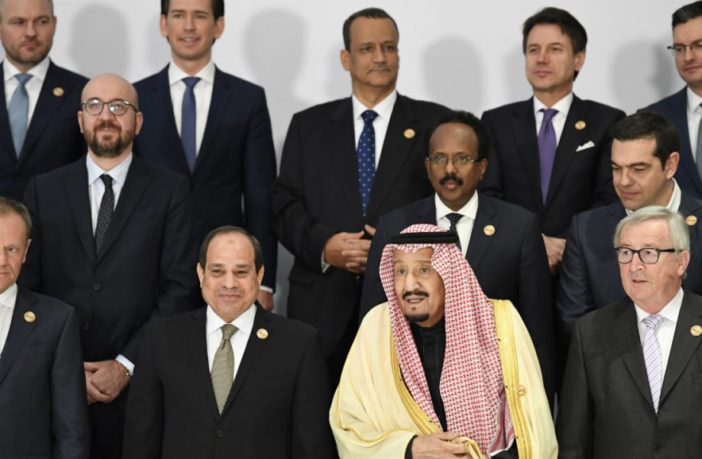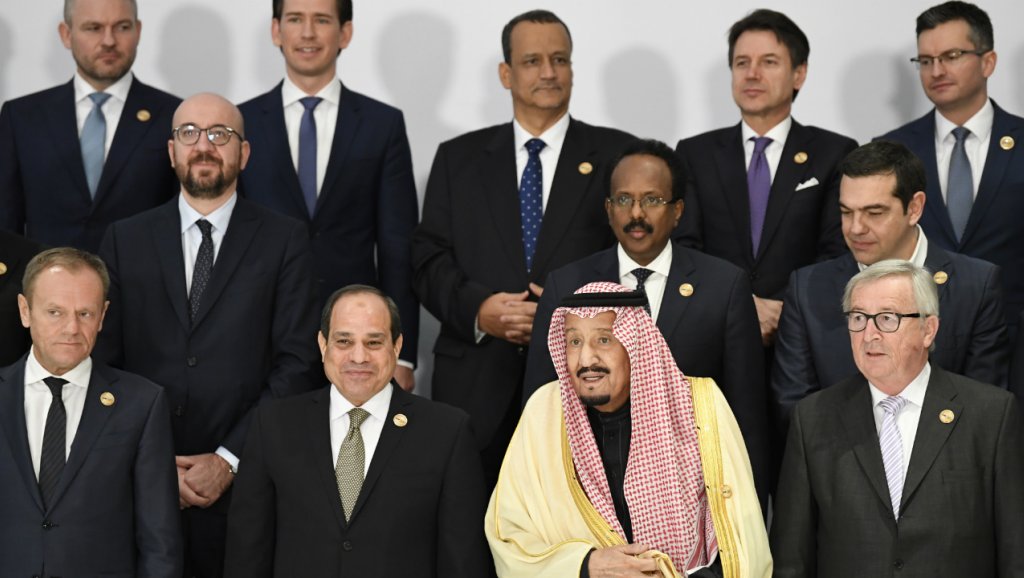France24
European and Arab leaders on Sunday opened their first summit in Sharm el-Sheikh in a bid to bolster cooperation as EU President Donald Tusk declared the region “should not leave it to powers far from it”.
Host Egyptian President Abdel Fattah al-Sisi painted a “bleak” picture for a region hit by wars and terrorism as he appealed for deeper cooperation, in his opening summit speech at the Red Sea resort of Sharm el-Sheikh.
European Union countries view the summit as a way to protect their traditional diplomatic, economic and security interests while China and Russia move to fill a vacuum left by the United States.
Tusk, the president of the European Council who organises summits for EU countries, acknowledged “there are differences between us” but said neighbours had more at stake than distant powers.
“We need to cooperate and not leave it to global powers far from our region,” the former Polish premier told leaders from about 40 countries.
He did not name those powers but an EU source confirmed he meant China and Russia. China is increasing trade with the region and has established a military base in Djibouti.
Russia militarily backs Syria’s President Bashar al-Assad in his civil war.
EU sources said the first EU-Arab summit is all the more important as the United States “disengages” from the region while Russia and China make inroads.
“We don’t want to see this vacuum soaked up by Russia and China,” one of the sources told AFP.
The summit in the southern Sinai desert is heavily guarded by Egyptian security forces who are fighting a bloody jihadist insurgency a short distance to the north.
The presence of so many leaders shows “what brings together the two regions, Arab and European, exceeds immeasurably what divides them”, Sisi told those gathered.
‘Mounting risks and challenges’
Sisi called for resolving the decades-old Palestinian-Israeli conflict and settling more recent wars and conflicts in Libya, Yemen and Syria.
“The picture is in fact bleak at present,” said Sisi, who led the army’s overthrow of president Mohamed Morsi in 2013 following mass protests against the Islamist leader’s rule.
He called for Arab and EU economic cooperation and warned of “mounting risks and challenges” including terrorism and migration.
“Has not the time come to agree on a comprehensive approach on combatting terrorism?” Sisi asked.
Tusk issued an appeal for both Arabs and Europeans to “break the business model” of smugglers taking migrants to Europe.
European leaders first mentioned the Arab summit in Austria in September amid efforts to agree ways to curb the illegal migration that has sharply divided the 28-nation bloc.
But checking migration is just part of Europe’s broader strategy to forge a new alliance with its southern neighbours.
A UN official warned that Europe’s failure to bridge divisions on migration “risks blocking all the other discussions” at the summit.
The EU has struck aid-for-cooperation agreements with Turkey and Libya’s UN-backed government in Tripoli, which has sharply cut the flow of migrants since a 2015 peak.
But the UN official said broader cooperation with the Arab League, which includes Libya, is limited without the EU being able to speak in one voice.
Marc Pierini, a former EU ambassador to Tunisia and Libya, said the Arabs are also grappling with divisions since the Arab Spring revolutions that spread across the region in 2011.
British Prime Minister Theresa May held one-to-one talks with Tusk and was due to hold further bilateral meetings with EU leaders as she tries to break the stalemate at home over her divorce agreement with the EU.
Most of the leaders of the 22-member Arab League attended, except for Assad, whose country was suspended from the League over the civil war, and Sudan’s Omar al-Bashir, who is grappling with protests at home.
Absent on the EU side were the leaders of France, Spain, Latvia and Lithuania.
(AFP)








